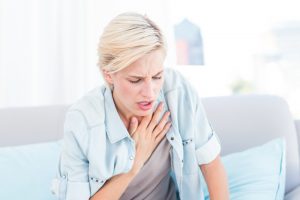During the month of November the Lung Health Foundation, ‘encourages everyone to stop and think about what they can do with just one breath’.
Their aim is to ensure that lung health is a priority for all Australians. Promoting education and the knowledge that lung disease does not discriminate.
Sadly, at least one in ten Australians will have some form of lung disease. Though more than half of us rarely or never think about the health of our lungs.
What are lung diseases?
Lung disease refers to any disorder affecting the lungs, including:
- Asthma
- Chronic bronchitis
- Chronic Obstructive Pulmonary Disease (COPD)
- Emphysema
- Infections (influenza and pneumonia)
- Lung cancer
- Bronchiectasis
- Pleural Mesothelioma
- Interstitial lung diseases
- Cystic fibrosis
- Pulmonary Arterial Hypertension (PAH)
- Sarcoidosis
- Chronic cough
- Orphan lung diseases
- Pulmonary fibrosis
What are the facts?
- Lower respiratory infections are the leading cause of hospitalisation.
- Lung cancer is the leading cause of death.
- COPD contributes to one-third of all deaths.
- 14% of all deaths in Australia are caused by lung disease.
- 2.3 million Australians have asthma.
- 11,270 Australians are diagnosed with lung cancer each year.
What causes lung disease?
Though the exact cause of all types of lung disease are not known, some common causes include:
- Cigarette smoking: has been linked to a number of respiratory diseases including lung cancer and COPD.
- Asbestos: harms the cells of the lungs causing scarring and cancer.
- Air pollution: may contribute to COPD, lung cancer, asthma and other lung diseases.
- Infections: viral, bacterial or fungal.
What are the symptoms?
Symptoms may not be obvious and are easily written off as signs of ageing or lack of physical fitness. Common symptoms can include:
- Breathlessness or wheezing
- Persistent, new or changed cough
- Fatigue
- Chest pain and/or tightness
- Coughing up blood or mucus
How can I lower my risk?
- Quit smoking
- Avoid second-hand smoke
- Avoid asbestos
- Protect yourself from chemical fumes and dust
- Eat a nutritious diet
- Get adequate exercise
- See your doctor: ask about whether you should have a spirometry test and about vaccines for flu and pneumonia.





